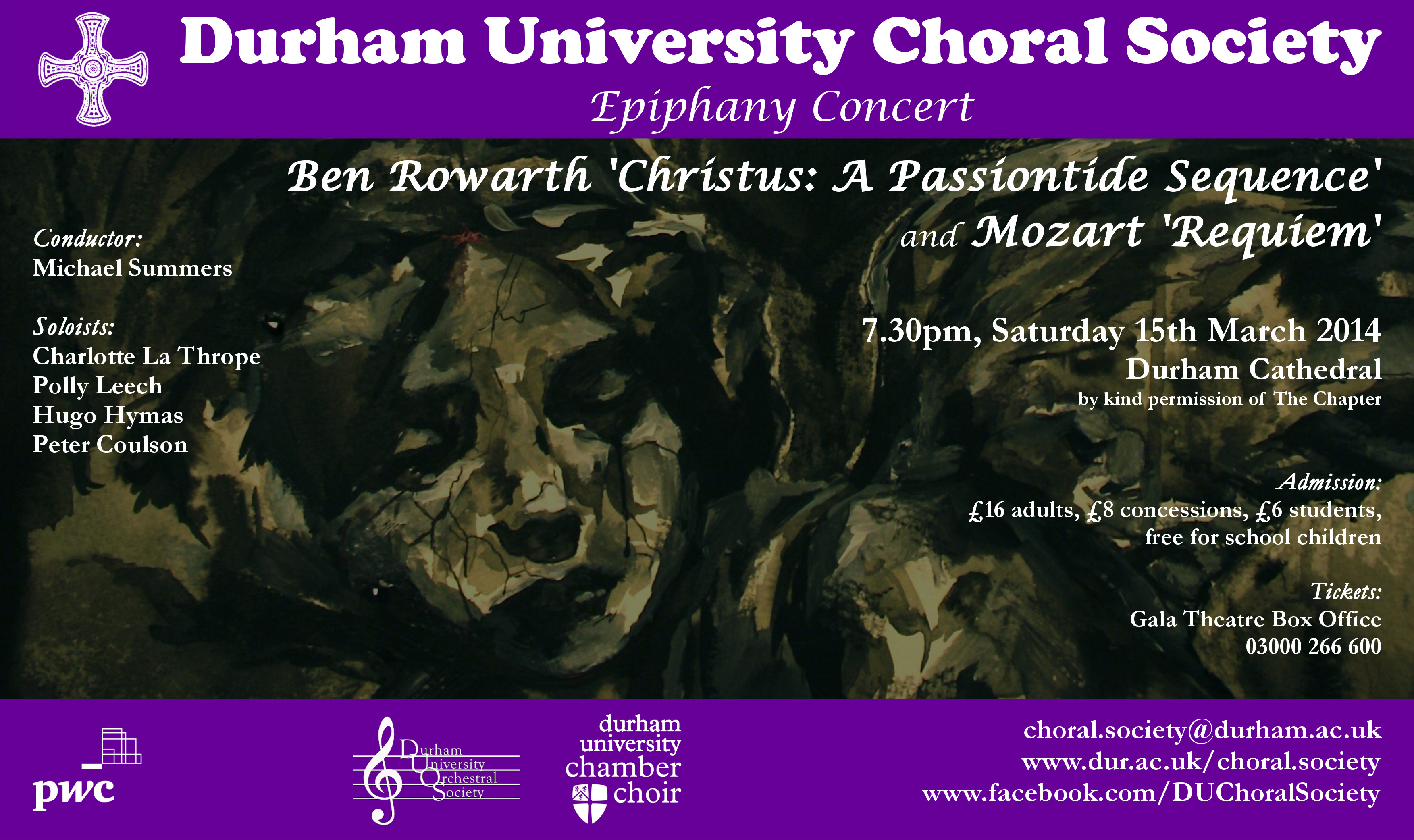
The concert poster.
Taking place this Saturday in the Cathedral, Durham University Choral Society’s Epiphany Concert this year will première a brand new commission by Durham University graduate Ben Rowarth. Titled Christus: A Passiontide Sequence, it will be paired with Mozart’s famous ‘Requiem’. The Choral Society will be joined by members of Durham University Chamber Choir and will be accompanied by Durham University Orchestral Society. Mozart’s ‘Requiem’ barely needs any introduction, it is one of the most famous pieces in the choral repertoire and its brilliance is undeniable. It is notable for the fact that Mozart died before he managed to finish it, meaning that there are multiple completions available to choose from when performing it, though by far the most famous is the one by the composer Franz Xaver Suessmayr. Durham Cathedral is a great venue for this piece and hopefully Choral Society will do it justice.
Ben Rowarth was heavily involved with music whilst at Durham, singing with Durham University Chamber Choir and Durham Cathedral Consort of Singers as well as conducting numerous choirs. He now manages ‘Renaissance’, a small ensemble of singers specialising in Renaissance Polyphony and Contemporary Music. As a composer he specialises in Choral Music and has recently been commissioned to compose a piece for Hild Bede College Day 2014. He also composes music for theatre, his soundtracks to Doctor Faustus and The Bacchae have been performed in Durham in recent years. Recently I had the opportunity to ask Ben a few questions about the concert and about his music.
What inspired you to write Christus: A Passiontide Sequence and do you enjoy writing programmatic music more than non-programmatic music?
The Passiontide Sequence was just something I thought would be an appropriate text for the time of year that the concert was happening – ie. lent. I certainly have much more experience of writing sacred music and the Passion story provides a dramatic and moving story to bass and oratorio sized work around.
How does it feel to have your work premièred somewhere like Durham Cathedral?
It’s an honour to have the work premièred in Durham Cathedral – an extremely prestigious musical venue and it will, I’m sure be a very special occasion.
Have you been working with Durham University Choral Society, Orchestral Society and Chamber Choir and how was that experience?
Although I haven’t yet had a chance to work with the Choral Society and Chamber Choir I have heard both groups and am looking forward to working with them in some of the rehearsals leading up to the concert.
Have you got any comments on the music degree at Durham, did it prepare you for working as a composer?
My degree certainly helped me to improve on my composition skills, become more self critical, and just the ultra-musical atmosphere of a place like Durham also helped inspire musical composition.
What contemporary composers are you listening to most at the moment?
Probably James Macmillan and Francis Poulenc who, although not strictly contemporary, wrote music that certainly stands up in today’s highly original, fast changing world of contemporary composition.
